What Makes Magic Schools Magical?
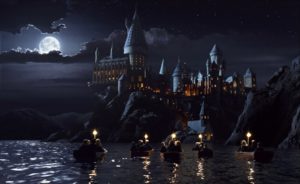
Imagine three alternate realities:
Reality 1) Hank is a student at Boridium Academy for the Supervillain Genius. It’s science class, and his classmates are all watching. He sets up the experiment. He checks the equipment, and, squeezing his eyes closed for luck, he flips the switch.
The machine whirls. The lights blink. And…it works! The tractor presser beam makes the ball float!
Reality 2) Li kneels obediently at Hao Fu Academy of Mental Prowess. To either side, his fellow classmates kneel on their tatami mats. The room is quiet, serene. Sandalwood incense burns. In the distance, a water flute goes click-clack.
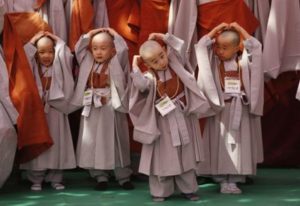
Young psychics practice their developing their mind powers.
Obediently, Li squints at the multi-colored ball that rests on a short squat tee. He deliberately blocks out all distractions. He concentrates, rubbing his temples and visualizing the line of yellow, psi energy connecting his thoughts to the object of his attention.
Slowly, the multi-colored ball raises into the air.
Reality 3) Harry is a student at Hogwart’s School of Witchcraft and Wizardry. He and his fellow students are dressed in long black robes and wearing tall pointed hats, some decorated with stars an moons. They sit at their desks in Charms, a class held within the stone walls of a vast castle.
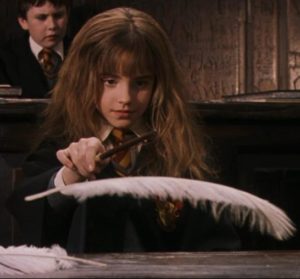
Now that’s magic!
At the signal given by their diminutive professor, also dressed in voluminous robes, the students whip out their slender wands and wave them in the air, chanting:
“Wingardium-leviosa!”
Lowly, slightly wobbly at first, Harry’s ball begins to float into the air.
*
In all three scenarios, something amazing happens. Something we can’t do very easily here on earth. A ball floats in mid-air. Some might even say that all three—tractor-presser beams, psychics, and magic spells–are all magic.
Yet only one of them feels like magic.
What is it that makes them different? It’s not a sense of wonder, the mad scientist and the zen-like psychics can also evoke a great deal of wonder.
Is it the setting?
I’d have to go with no, because one can easily imagine mad scientists and super geniuses in a castle (Young Frankenstein comes to mind, or Girl Genius) and it still feels like science.

Admit it, you think it’s the clothes
Is it the clothing?
Scientists in black robes is a bit odd, an while I can picture psychic students dressed like either medieval monks or Shinto monks, it is harder to picture them dressed in graduation robes. Still, I don’t think the robes alone make the magic.
Is it not using a device?
Can’t be that. It is true that the mad scientist in training uses a machine, but the young magician uses a wand. And, on top of that, the future psi corp member does not use a machine. He does not even use a wand.
And yes, psychics does not feel like magic. So much so that in the earlier years of SF, having psychics in the story immediately made it science fiction—not fantasy.
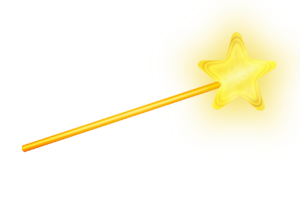
Glittery!
Is it the wand?
Well, certainly having a wand makes it magic. Neither the mad scientists or the Jedi would use a wand. But, one does not need a wand for it to be magical. For example:
Reality 4) Sigfried Smith is a student at Roanoke Academy for the Sorcerous Arts. He is lounging in Language class, not really paying attention to the tutor. He and his fellow students sit around a polished wood table on wicker-backed chairs. He is dressed in a long black robe and a mortarboard cap, with a tassel that is slight too short and smells slightly charred, as his familiar, Lucky the Dragon accidentally set it on fire during dinner one day last week.
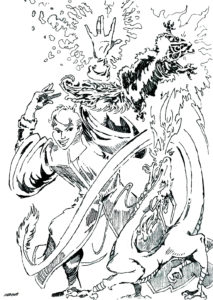
Forget balls, Sigfried floats a skunk
The tutor calls the class to attention. They stand and place wooden balls upon the large table before them. Then, in unison, they point two fingers together and shout,
“Tiathelu!”
Some balls rattle slightly. Some rise wobbling into the air. Siggy lifts his to the ceiling, sends it through a lazy loop-de-loop, and bounces it off the head of a boy who once irked him. Or was it that boy over there who had irked him. Really, no one could be expeced to keep track of such things.
*
Okay, Sigfried Smith was not a good example—he is distracting—but, siggification aside, Sigfried is able to float the ball using magic without a wand, so it isn’t wands per se. In fact, I could redo the magic description with potions or alchemy or music or dozens of other methods.
So…what makes it magic?
In science, the power comes from the material world. The superscientist may come up with never before thought of ways to manipulate this matter, but there is a sense that anyone who copied him could get the same result.
Magic can come from the outside, too…but, if so, it is usually the hidden, unseen realm that is acting—not the material realm. In fact, if there isn’t a sense of the laws of the material realm being broken, or at least ruffled, it doesn’t really feel like magic.
Which may be why psychics doesn’t feel like magic, while all these other things–charms, wands, potions, cantrips, etc—can: Psychics often is implied to be at one with the laws of nature. The Force runs through all living things, for instance. It is an underlying law of nature, at one with the world rather than in conflict with it.
This is not the case with all mental powers, but there is a linger sense of science around psychics. You have it because of the nature of your brain, because of the number of metasomethingsorother in your blood. That kind of thing.
True, psychics can be made much more mystical…and yet, strange as it sounds, mystics and magic often don’t mix that well.
So what makes it feel magical? How can something as scientific as the careful mixing of potion ingredients at Hogwarts or Whitehall or Miss Cackles still feel like magic? How come they don’t feel out of place with cantrips and charms, even though the evil genius and the monk-robed mentalist would feel out of place at those august centers of learning?
So, what is it?
I don’t really know, but I will hazard a few guesses.
I think magic is more like art. Anything you can do regularly every time like clockwork, feels less like magic. Anything anyone can do just as easily as anyone else feels less like magic. The same way artists can work and each produce an entirely different picture, one perhaps reproducing the color, while another gets the shape down–magic feels like that.
Magic also tends to feel nostalgic. While I am certain someone could do a futuristic magic story, it would be difficult to maintain the mood. Why? Because once men have magic, they don’t really need scientific gadgets, so things tent to feel a bit more like the world did before those things imposed themselves upon us…more medieval, or at least more Victorian. While futuristic, by definition, tends to imply shiny gadgets (or dingy metal corridors).
But even that only scratches the surface of the topic.
What is it that you think makes magic feel magical?

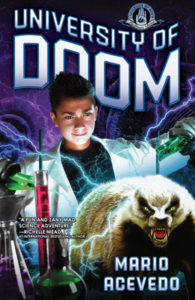
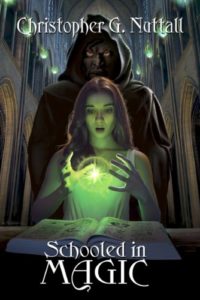
Is it the selling your soul to demons for power? Isn’t that the traditional option?
That is one option, but not the only one. Might write about that at some point, too. 😉
That’s goetia.
There’s also theurgia, working with gods or angels.
Finally, there’s magia, using the occult properties of things. Like using rubies to strengthen blood. Or — using willow bark to treat headache (“occult” does, after all, mean “hidden”, whatever connotations it has.) Or, for that matter using “powders of inheritance” also known as arsenic in your uncle’s soup.